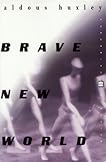 The Art of Fiction: A Guide for Writers and Readers by Ayn Rand
The Art of Fiction: A Guide for Writers and Readers by Ayn RandMy rating: 5 of 5 stars
I believe this may be the most insightful book about writing that I have ever read. Ayn Rand is not about to accept any of the common cop-out explanations for writing: "Well, it just turned out that way." "I felt like doing it like that." "It seemed right." She declares that everything you write is because of some premise you hold in your head, whether you realize it or not, and that the key to good writing is to learn how to identify and shape those premises as you wish.
Her understanding of plot is more distinct and complete than that of any other writer I've heard explain the issue. For Rand, plot is all about definite purpose. This extends even to her descriptions, where every sentence is evaluated for how well it advances the (sometimes many) purposes of its paragraph. Rand draws a distinction between Romantic writing and Naturalistic writing. Romantic writing, she says, examines the underlying motives of human decisions, while Naturalistic writing claims to set down things 'as they are' but makes no value judgments. I found this insight helpful, as it explains why some books called classics are engaging and memorable, while others seem to wander without a point.
Some may find Rand's philosophy hard to get past. She certainly isn't shy about communicating it to you. Some may also find Rand's self-aggrandizing to be a distraction. (As she openly says early in the book, she believed herself to be the best writer of her time.) However, in my opinion, the clear advice she offers is too valuable to pass by. The fundamentals of good fiction are all here in this slender volume.
Note: Because of my own self-censoring, I skipped most of Chapter Eight, which dealt with love scenes. Readers who wish to guard their hearts from such things (and those under 15) will probably want to do the same.
View all my reviews


